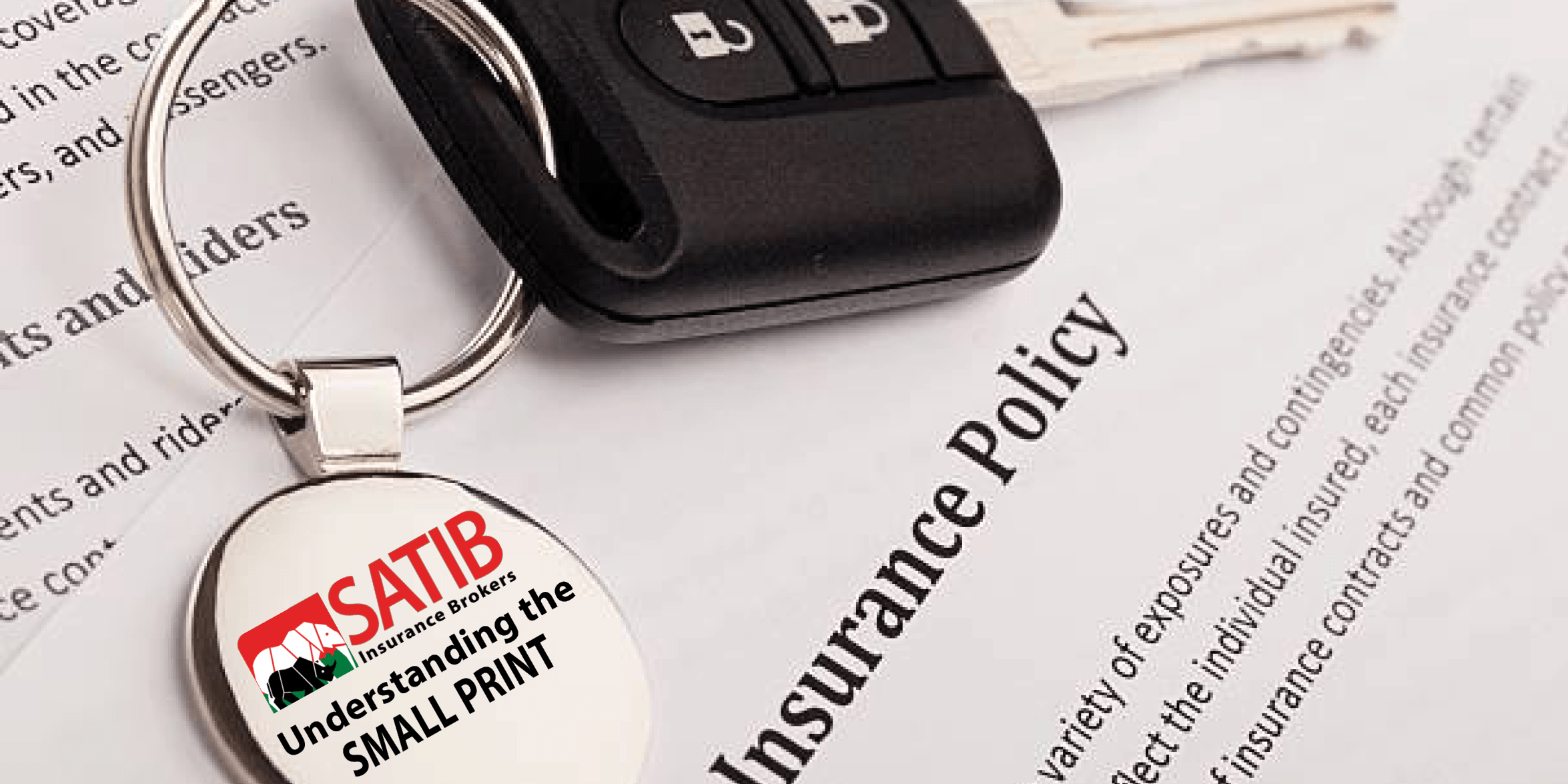Understanding the terminology in your policy is important so that you can make sure you are properly covered and have peace of mind. Finding out you’re not insured for something you thought you were covered for can cause a huge financial setback. Ultimately, people take out insurance so that their claims will be paid out when they suffer a loss. It is therefore important that you consult a broker that understands your needs and ensures you have cover that best protects your unique requirements.
To assist you, we have included some explanations of common legal terms found in insurance policy documents and common concepts in insurance.
Act of God
Any incident that is not man-made, which causes destruction to property and/or plants/crops, and/or injury or death to people or animals. Examples are flooding, lightning/storms, earthquakes etc.
Arbitration
“Arbitration” is a process whereby disputes are adjudicated. The parties in dispute must agree to the arbitration process instead of going to a court of law. The resolution of disputes through arbitration is done under the set rules that govern the arbitration process. The outcome of any dispute resolved through arbitration is binding on those parties as if it was a court order and can be enforced through a court of law.
Consequential loss
Consequential loss is normally excluded from the cover provided by a policy. Put simply, loss or damage for insurance purposes can be classified in two ways: “first loss or damage” or “following loss or damage”. For following loss or damage to be classified as consequential loss, it must arise as a result of first loss or damage. But damage that was not foreseen at the time of policy issue. For example, if you have a motor accident and consequently miss an important meeting that causes you financial loss, it would be regarded as consequential loss.
Excess
Your excess is the agreed amount of money you pay the insurer as a contribution towards the repairs or restoration.
Exclusion
A policy is a contract between you and the insurer. The policy will mention the type of insurance cover the insurer is providing for your property. However, it will also mention the nature of incidents or items it will not cover. These incidents or items that are not covered are referred to in your policy document as “exclusions” or “not covered”.
Ex Gratia
In insurance, ex gratia means goodwill compensation to you for loss or damage to your insured property that the insurer is not compelled to pay in terms of the insurance policy.
Extensions
This is cover that is in addition to the standard insurance cover offered. It is also referred to as “optional cover”. You can choose to add this cover to the standard cover but at an additional premium. For example, some motor policies don’t cover hail or windscreen damage. These can be included through additional optional cover.
Hold covered
This is when an insurer cannot issue an insurance policy to you immediately because of administrative limitations or because the insurer is conducting a further investigation on your insurance application. The insurer can agree to partly cover you for specific incidents pending the completion of the administrative or investigative process. The giving of the part cover is called “hold covered”.
Insured perils
Insured perils are incidents that must cause loss or damage to the insured property as defined in the policy wording for a claim to be valid. The time and location of these incidents are not known, except that it is expected that they may occur where your property is located. Examples are earthquakes, fires, floods, collisions and storms.
Jurisdiction
Jurisdiction is the power given to a court or arbitrator to resolve disputes. Whether such court or arbitrator has jurisdiction can be a complex issue, depending on the facts of a particular case.
Limit of indemnity
The limit of indemnity is the highest amount the insurer has, to pay for a claim. This amount should be the value of the insured property or the amount it will cost to replace the property if it were to be lost or damaged to an irreparable condition. It is your responsibility, as the insured, to ensure that your property is insured for the correct value.
Material fact
In insurance, material fact refers to essential information about a person or property that can influence the insurer’s decision whether to accept a risk to insure or whether to extend more conditions or to increase the premium. For example, does the house have a thatched roof; what previous insurance claims have been submitted; or what is the age of the regular driver?
Negligence
Negligence is measured or decided by using the standard of the fictitious “reasonable person”. For example, in the event of a motor vehicle collision, to determine whether or not the driver of the vehicle was negligent, a “reasonable person” is assumed to be someone of sound mind and observation, with experience of driving in similar conditions, who has knowledge of driving and a valid driver’s license.
Non-disclosure
Non-disclosure is when you fail to give material information when it is necessary or a requirement to do so.
Passenger liability
This refers to cover to protect you against claims for injuries or death of a passenger in a vehicle you were driving.
Prescription
Prescription refers to the period within which an insured person or company must institute legal proceedings (serve a summons) on an insurer to enforce their rights. If you fail to do so within this period, you will no longer be entitled to enforce your rights. This period is usually three years from the date of repudiation of a claim. “Time barring” is the period specified in a policy during which time you must institute action. This is normally a much shorter period than the three-year prescription period.
Reasonable costs
These are costs that you, as the insured, reasonably incur, for example, to prevent, remedy or reduce the extent of loss or damage to your insured property. An example includes the towing costs of a vehicle after an accident. However, it depends on your policy, since some insurers don’t cover towing costs without their approval. Most insurers have emergency numbers you should call in the event of an accident.
Reinstatement of a policy
Reinstatement refers to when your insurance cover ends for a particular reason and the insurer subsequently reinstates the cover.
Repudiation
Repudiation refers to a decision by the insurer to refuse to pay a claim for a particular reason. For example, the insurer may repudiate a claim if:
The insurance contract did not cover the event which led to the loss or damage;
You acted contrary to what was stipulated in the contract;
The property being claimed for was not insured under the contract; or
The contract had been terminated, for whatever reason, before the event that led to the claim.
Subrogation
This is the right of an insurer to recover from a third party (who has wrongfully caused the loss or damage to your property) the costs it has incurred to compensate you. If you are in a motor accident that was not your fault and the insurer recovers your excess from a third party, the insurer must pay this back to you.
Sum insured
For each property insured there is a limit (a maximum amount) to what the insurer will pay or settle in the event of a claim. This is referred to as the “sum insured”. The sum insured should be the amount it will cost you to replace your property should it be completely destroyed or lost.
Third-party liability
Third-party liability means cover to compensate a third party on your behalf if the law compels and holds you responsible for loss or damage of the third party’s property or for the injuries or death of the third party.



